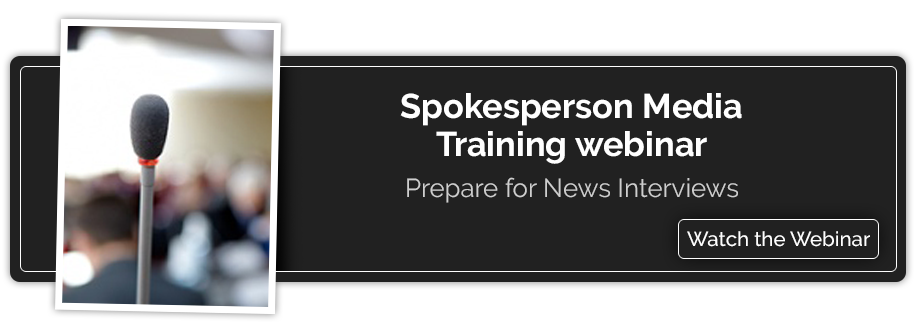
Recently, one of our clients made an impromptu business trip to do a news interview. Our client was the top expert on the subject of the interview, and this was an opportunity for him to be the spokesperson for a major news story. The interview went well, however, the reporter ultimately decided not to use it in the piece. This was quite a bummer – and a reminder that the news business is fickle and you shouldn’t take things personally when dealing with journalists.
A successful media interview provides a huge boost to your company’s reputation and brand. It’s a way to get your name in front of your target audience as a thought-leader in your field. You’re adding value to consumers’ lives without trying to sell your product. With so much at stake, it’s quite a letdown when things don’t go as expected or your interview gets dropped. Instead of vowing to never do another interview, learn why interviews sometimes get cut, how to handle it and why it may be an advantage in disguise.
Here’s what you shouldn’t do when your interview gets bumped:
- Don't feel offended. While it all worked out fine, we warned our client upfront that sometimes media outlets postpone or cancel interviews. When breaking news happens, priorities and deadlines can change. It’s important to note that, most likely, you did nothing wrong.
- Don't place blame. There’s a tendency to be angry at the PR agency, the journalist or the media outlet. However, it’s imperative to realize that it’s no one’s fault when an interview or story is bumped. You shouldn’t view it as a waste of time. There are valuable lessons from every encounter with a reporter.
- Don’t overextend yourself. Be cautious when making special plans, including traveling and investing time and money just for one news interview. In our client’s case, the interview was important, so it was worth it to take the trip. However, executives and corporate marketing departments should be aware that interviews get rescheduled and reprioritized all the time. We always recommend having additional business in the area or other justification for such a trip.
Here’s what to do after the interview:
- Say thank you. Send a quick email or note to the reporter to thank her for considering you in the story.
- See it as a teachable experience. Even if your comments didn’t make the article, it was still a valuable encounter. Analyze the experience, including anything you might have done differently, and share your knowledge with others in your organization. This will make you more prepared for the next time.
- Use it to build a relationship. If the interview went well, you’re on your way to creating a lasting connection with the journalist and news outlet. The reporter will remember your help and possibly use you as an expert source again in the future. She may also be more receptive to a forthcoming pitch when you’re looking to get media attention for your own company.
- Don’t go it alone. The nuts and bolts of news interviews are often intricate and confusing. Let the media experts at Axia Public Relations guide you through. While there’s no guarantee that an interview will go as planned, it does go better when you’re practiced and polished. Our team will make sure you’re always ready for your close up. To learn more, contact us today or watch our webinar “Media and Spokesperson Training.”
Was your last encounter with the media a boon or a bust? Tell us about it in the comments section.
 Clients love Lisa’s engaging writing and PR experience. She specializes in business and technology PR. Lisa has worked with Axia since December 2013. Learn more about Lisa.
Clients love Lisa’s engaging writing and PR experience. She specializes in business and technology PR. Lisa has worked with Axia since December 2013. Learn more about Lisa.
Featured image credit: 123rf.com
Topics: media relations, public relations, earned media


Comment on This Article